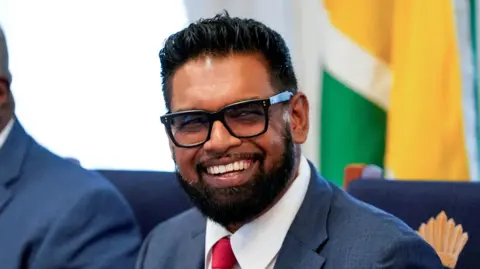Venezuela's economy remains in a precarious state as inflation continues to soar, exacerbated by renewed sanctions from the United States, particularly under President Trump’s administration. In response, Maduro's autocratic government has recently begun cracking down on independent economists, who have been critical in providing data about the nation's economy, particularly when the Central Bank of Venezuela has largely ceased to publish reliable information.
Reports indicate that in the past two months alone, approximately two dozen economists and individuals involved in the publication of financial data have been detained, according to a local human rights organization and the government. Phil Gunson, an analyst with the International Crisis Group, noted that this approach reflects a “shoot-the-messenger policy,” which targets those who present inconvenient truths about the economic decline.
Experts have expressed concern that the government's actions signify a desperate attempt to manage public perception of the increasingly dire economic conditions. With the Bolivar as the official currency, many Venezuelans have resorted to using U.S. dollars in everyday transactions, highlighting the prevalent dual-currency system.
As the economic situation remains critical, many analysts and activists fear that these government actions against economists may silence crucial voices and further impede a transparent understanding of Venezuela’s financial situation, entrenching a cycle of misinformation and crisis management by the state.
Reports indicate that in the past two months alone, approximately two dozen economists and individuals involved in the publication of financial data have been detained, according to a local human rights organization and the government. Phil Gunson, an analyst with the International Crisis Group, noted that this approach reflects a “shoot-the-messenger policy,” which targets those who present inconvenient truths about the economic decline.
Experts have expressed concern that the government's actions signify a desperate attempt to manage public perception of the increasingly dire economic conditions. With the Bolivar as the official currency, many Venezuelans have resorted to using U.S. dollars in everyday transactions, highlighting the prevalent dual-currency system.
As the economic situation remains critical, many analysts and activists fear that these government actions against economists may silence crucial voices and further impede a transparent understanding of Venezuela’s financial situation, entrenching a cycle of misinformation and crisis management by the state.




















